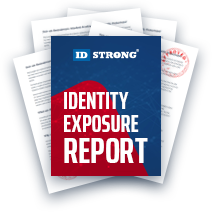Netflix Email Scams – Here’s What to Do
Table of Contents
- By David Lukic
- Published: Feb 28, 2022
- Last Updated: Mar 18, 2022
Email phishing is one of the most common cyber-crimes, and currently, Netflix subscribers are being targeted with an email scam. It is estimated that nearly 110 million subscribers are at risk of falling victim to this identity theft attempt.
Unfortunately, identity theft and cyber scams are widespread and continue to grow and evolve. Phishing attacks like the Netflix email scam nearly doubled from 2019 to 2020. More people are working from home due to the COVID 19 pandemic and spending more time online than ever before. The Identity Theft Resource Center (ITRC) has reported:
- 1,291 data breaches occurred in the first three quarters of 2021.
- The trend for the year indicates that the number of attacks could overtake the current record of 1,632 set in 2017.
Furthermore, according to the FTC, identity fraud incidents increased around 45% in 2020.
How the Netflix Email Scam Works
Netflix subscribers receive an email posing as a Netflix communication. The subject reads: “Your suspension notification.” This subject line is meant to illicit enough curiosity that the recipient goes on to open and read its contents, which state:
“We were unable to validate your billing information for the next billing cycle of your subscription; therefore, we’ll suspend your membership if we do not receive a response from you within 48 hours.”
As the subscriber starts to think about which card they have on file and what the reason for its failing verification, the scam email continues with:
“Obviously we’d love to have you back, simply click restart your membership to update your details and continue to enjoy all the best TV shows & movies without interruption.”
The link provided is, of course, posing as a Netflix link but is instead a link to the fraudsters’ domain. Information entered is stolen and used for unauthorized purposes.
The scammers behind the Netflix email scam are trying to capture the following personal information:
- Your Netflix login and password.
- Identifying personal information, such as your address and date of birth.
- Billing information – your credit card number, expiration date, and CVV code.
The email closely resembles the Netflix brand’s look and feel, but you should be able to spot some red flags if you look closely. Here’s what to keep in mind when trying to ascertain if an email is fraudulent:
- Most vendors will not ask for your personal information via email or phone call but will provide a secure email or portal that is password-protected.
- If you hover your mouse over the Sender field of the email, you will see the “from” email address. Check this carefully as it will have typos, misspellings, or strange file extension names, as well as other signs that it did not come from a valid Netflix email (ex. @netflixx, info@netflix.biz ). You can also do this with links embedded in the email.
- The email text could have missing spaces and other errors and typos.
- Pay attention to timed call-to-actions, such as the 48-hour deadline in the Netflix email scam. Phishing scams are known for creating a sense of urgency.
Netflix has responded to the news of this scam in early November 2021:
“We take the security of our members’ accounts seriously, and Netflix employs numerous proactive measures to detect fraudulent activity to keep the Netflix service and our members’ accounts secure. Unfortunately, scams are common on the internet and target popular brands such as Netflix and other companies with large customer bases to lure users into giving out personal information.”
How To Keep Your Netflix Account Safe
- Choose long, complex passwords that combine capital letters, lower case letters, numbers, and special characters.
- Do not reuse passwords across different websites.
- If updating or verifying any information, do so at the vendor’s valid website, after logging in.
- Report any suspicious emails to the company being impersonated.
- Do not click links in emails from senders you do not know, and carefully check the email sender information.
- Protect your home and office networks with extra security tools, such as firewalls and junk email filtering.
- Install anti-hacker tools on your devices.
- Utilize an identity theft monitoring tool that tracks your credit report activities and alerts you of suspicious activity, and keep a careful eye on all your accounts and credit report.
Being proactive with your online safety and monitoring suspicious activities can be overwhelming since so much of our daily transactions occur online. A little knowledge about how email scams work can go a long way, but it is crucial to stay on top of changing trends in email scams. As protections evolve, so do email scams and other phishing attempts. It is paramount to stay a few steps ahead of the scammers to keep your personal and financial information safe and secure.




















































































































